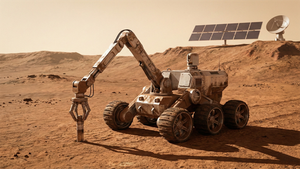Financial News
More News
View More
2 Ways to Trade Amazon Ahead of Earnings ↗
January 20, 2026
Sea, Space, & Sky: 3 Frontier Robotics Stocks Under $20 ↗
January 20, 2026
Rocket Lab Gets a Big Upgrade: Will Upside Follow? ↗
January 20, 2026
Moderna Pops 17%—Is There Life in MRNA, Down 90% from COVID High? ↗
January 20, 2026
AMD Rebound Begins: It’s Not Too Late to Get In ↗
January 20, 2026
Recent Quotes
View More
Stock Quote API & Stock News API supplied by www.cloudquote.io
Quotes delayed at least 20 minutes.
By accessing this page, you agree to the Privacy Policy and Terms Of Service.
Quotes delayed at least 20 minutes.
By accessing this page, you agree to the Privacy Policy and Terms Of Service.
© 2025 FinancialContent. All rights reserved.










